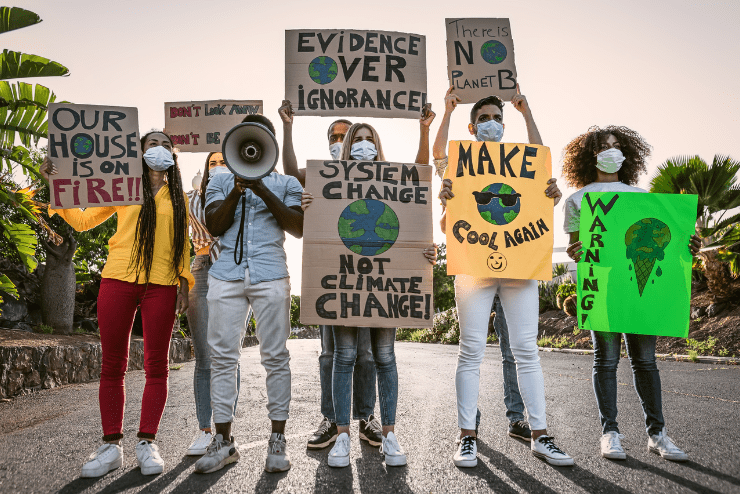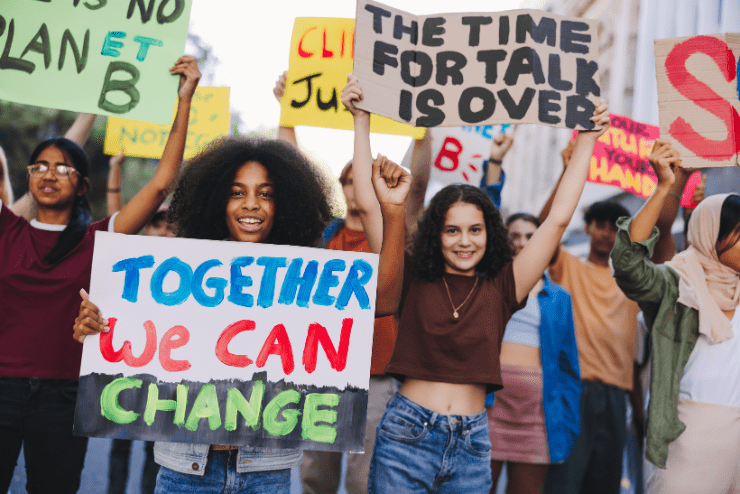- July 7, 2025
- Comments: (0)

The United States has a long history of protest and public demonstration as a cornerstone of its democracy. But do these rights extend to everyone, regardless of their immigration status? The answer is a resounding yes. If you are an immigrant in the U.S., it’s crucial to understand your rights regarding protest and free speech.
The Constitutional Right To Protest
Under the U.S. Constitution, the right to peacefully protest is protected for all individuals present on U.S. soil. This protection applies to everyone, regardless of whether they are in the U.S. on a visa, hold a green card, are seeking asylum, or are undocumented. This means immigrants have the same fundamental right to express their views and participate in demonstrations as U.S. citizens.
Key Rights During A Protest
While the right to protest is universal, immigrants should be particularly aware of specific rights and considerations to protect themselves.
a. Right to Free Speech: You have the right to express your opinions and join peaceful demonstrations.
b. Right to Remain Silent: If an immigration officer stops you, you have the right to remain silent. You are not obligated to answer questions about your birthplace or how you entered the U.S. You can politely state that you prefer not to answer questions or present a “know your rights” card.
c. Right to a Lawyer: If you are taken into custody, you have the right to speak to a lawyer. Please don’t sign anything until a lawyer is there to look it over.
d. Immigration Documents: While generally not required to share immigration status information if approached, individuals over 18 years old with valid immigration papers are legally required to carry and present them if asked by an officer.
e. Refusing Searches: You can refuse a search of yourself or your belongings unless officers have a reasonable belief that you are dangerous and conduct a pat-down for weapons.
Unique Risks & Precautions For Immigrants
Despite these protections, immigrants face unique risks that necessitate extra caution during protest activities. Arrests or criminal charges, even for minor infractions, can have severe implications for one’s immigration status, potentially leading to visa revocation or deportation.
It’s important to remember that there isn’t a single federal legal definition of “peaceful protest,” and definitions can vary by state and city laws. International students, DACA (Deferred Action for Childhood Arrivals) recipients, and TPS (Temporary Protected Status) holders are particularly vulnerable, as even minor arrests or violations could jeopardize their immigration status.
To minimize risks, consider the following:
> Focus on Peaceful Protest: Ensure your participation remains entirely peaceful and lawful.
> Be Aware of Surroundings: Stay alert to your environment and any potential escalations.
> Understand Local Laws: Familiarize yourself with local protest laws and regulations.
> Maintain Distance from Law Enforcement: Avoid confrontation or proximity to officers.
> Avoid Lying or False Documents: Never provide false information or fake documents to law enforcement.
> Document Interactions: If possible and safe, document any interactions with law enforcement.

How SwiftPass Global Can Help
Navigating the complexities of immigration law and understanding your rights can be challenging. At SwiftPass Global, we are dedicated to empowering immigrants by providing comprehensive resources and expert legal guidance. We understand the nuances of U.S. immigration policies and are committed to helping individuals achieve their immigration goals while protecting their rights. Our services aim to simplify the immigration process, offering clear, reliable, and up-to-date information to ensure your journey is as smooth as possible.